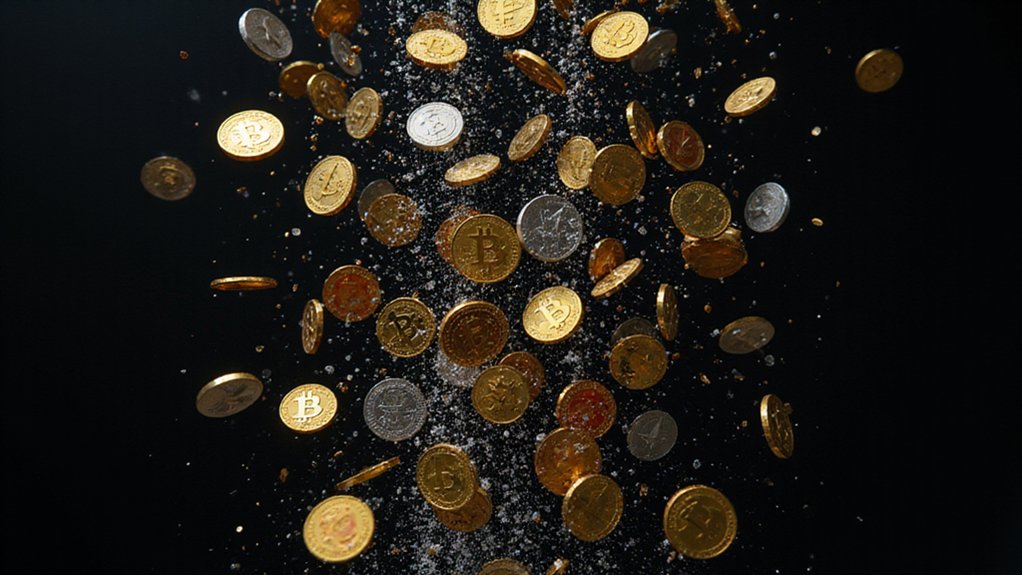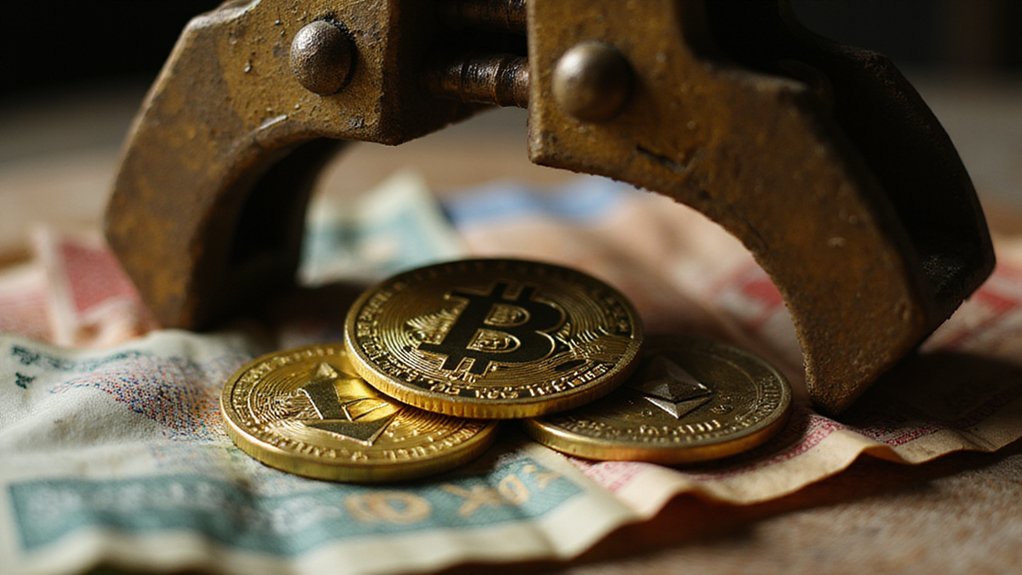While the cryptocurrency industry has spent years maneuvering through a regulatory maze that would make Kafka proud, 2025 appears to mark a watershed moment where lawmakers have finally decided that clarity might actually serve the market better than perpetual ambiguity.
The crypto industry’s Kafkaesque regulatory nightmare finally ends as 2025 brings the radical concept that clarity beats chaos.
The Digital Asset Market Clarity Act of 2025 represents Congress’s belated recognition that the jurisdictional tug-of-war between the SEC and CFTC had devolved into regulatory theater that impressed no one except compliance attorneys billing by the hour.
This bipartisan legislation—itself a minor miracle in today’s political climate—establishes clear demarcation lines between securities and commodities in the digital asset space, ending years of enforcement-by-enforcement-action that kept market participants guessing whether their next transaction might trigger an investigative letter.
The executive order signed January 23rd further signals Washington’s pivot toward technology-neutral regulations, with the SEC withdrawing certain enforcement actions and graciously announcing that memecoins are no longer considered securities (one can only imagine the relief among Shiba Inu holders). The new framework explicitly prohibits agencies from establishing CBDCs within US jurisdiction, marking a clear stance against central bank digital currencies.
Institutional investors, who had previously approached crypto with the enthusiasm typically reserved for IRS audits, are now increasing their digital asset exposure with newfound confidence.
The regulatory certainty reduces compliance uncertainty—a redundant phrase that somehow captures the industry’s previous predicament perfectly—enabling crypto firms to court traditional financial clients without fear of inadvertently violating unknowable rules. The CLARITY Act assigns primary jurisdiction over digital assets to the Commodity Futures Trading Commission while maintaining SEC oversight for investment contracts involving digital commodities.
Meanwhile, Asia-Pacific jurisdictions continue their strategic positioning as digital asset hubs.
Hong Kong and Singapore are developing extensive regulatory frameworks that balance innovation with investor protection, creating licensing regimes for exchanges and finalizing stablecoin requirements.
These developments suggest a global race for crypto-friendly regulatory environments, with jurisdictions competing to attract the significant capital flows that accompany institutional adoption.
The transformation extends beyond mere compliance frameworks.
Market infrastructure is maturing rapidly, with regulated exchanges and custodial services entering the space as legal guardrails provide the certainty institutional investors demand. This convergence of digital assets and traditional finance creates new opportunities for trading strategies that leverage both cryptocurrency volatility and stock market fundamentals.
Stablecoins face new strict requirements across multiple jurisdictions, while crypto derivatives and lending activities operate under clearer regulatory definitions.
This regulatory evolution represents more than bureaucratic housekeeping—it signals crypto’s change from speculative fringe asset to legitimate component of diversified investment portfolios, complete with the regulatory oversight that institutional fiduciaries require.









